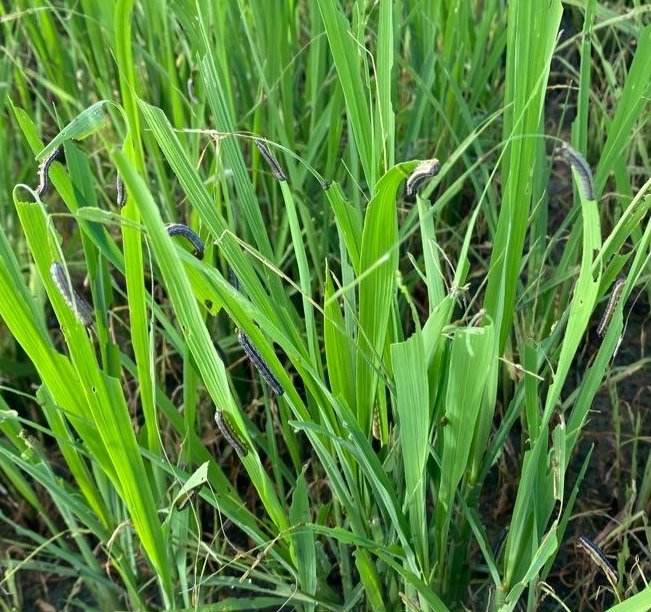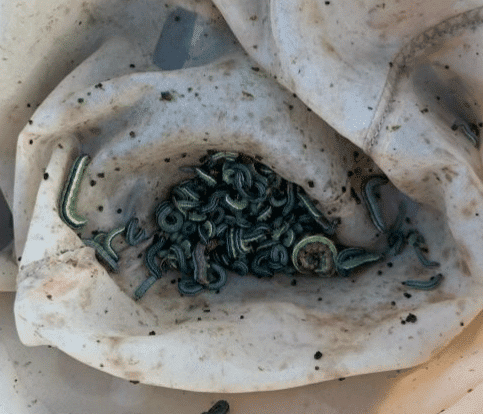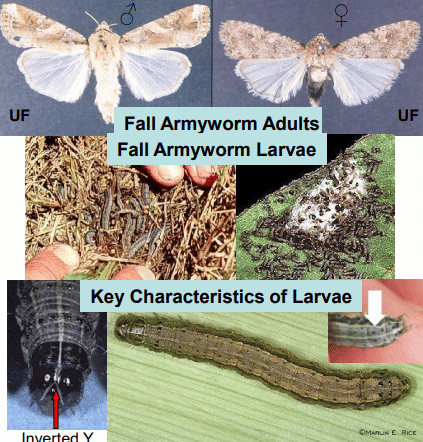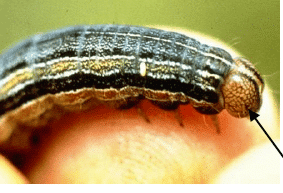“They’re baaaaaack! Fall armyworms are starting to make an appearance in some Arkansas counties. Start scouting now and learn how to manage them before they damage your pastures,” urges the University of Arkansas Cooperative Extension Service. Some gardeners have even reportated damage to their gardens.
According to the Extension, armyworms can cause damage to pastures and field crops, and reports are coming in that they are active now. “Did you know that the fall armyworm is one of the most devastating pests of pastures and hayfields, reducing both forage availability and hay yields.
Damage can appear almost overnight and infestations can be easily overlooked when the caterpillars are small and eating very little. Fall armyworms feed on a variety of forage crops and hayfields.

They also really love lush green well-fertilized bermudagrass.
Arkansas producers are encouraged to diligently scout their pastures and hayfields for fall armyworms. To do this, examine at least 10 one sq. ft. samples at random across the field.

Female fall armyworm moths prefer to lay eggs in areas of abundant growth, so be sure to include a few of these areas in your samples.
The fall armyworm in all stages of development can be identified using these images.

Fall armyworms aren’t the only pest of their type. True armyworms are a threat in spring and are green with brown or black paired spots along their backs.

Read more about armyworms and what to do about them here.
The Fulton County Extension, Salem, and can be reached at: (870) 895-3301
The Izard County Extension, Melbourne, can be reached at: (870) 368-4323
The Sharp County Extension, Ash Flat, can be reached at:(870) 994-7363
The Arkansas Cooperative Extension publication Managing Armyworms in Pastures and Hayfields can be downloaded here.





